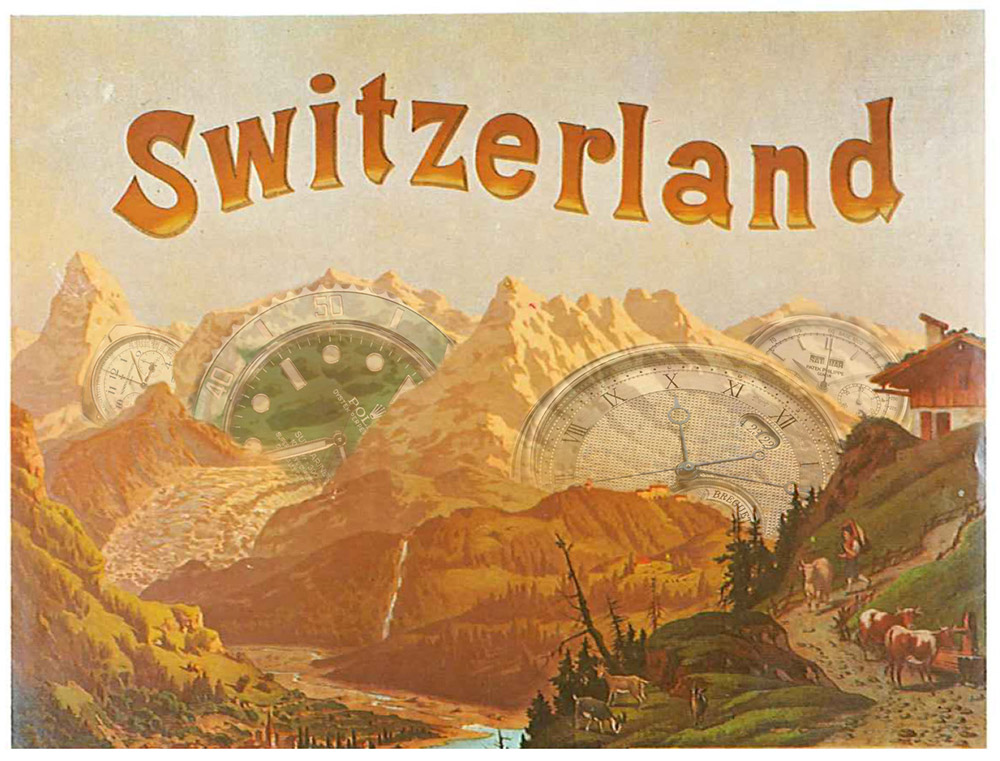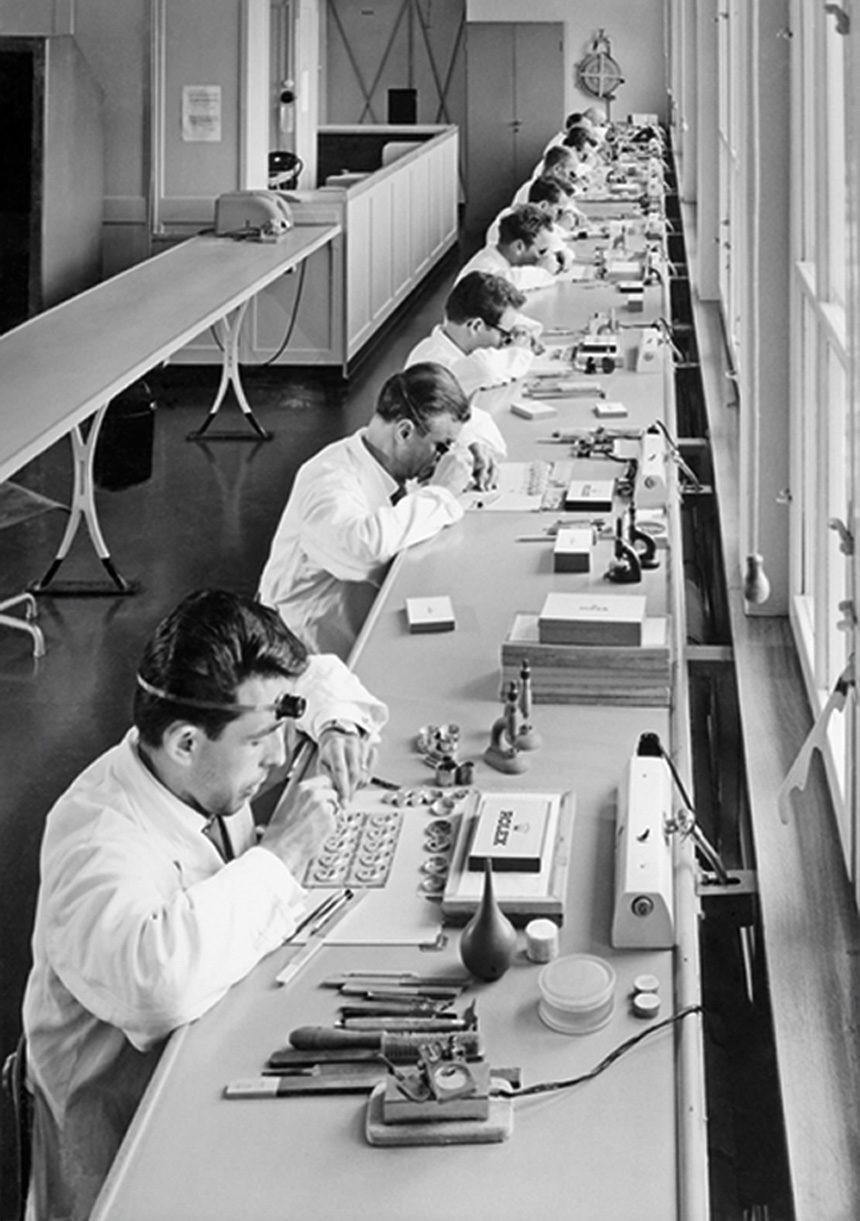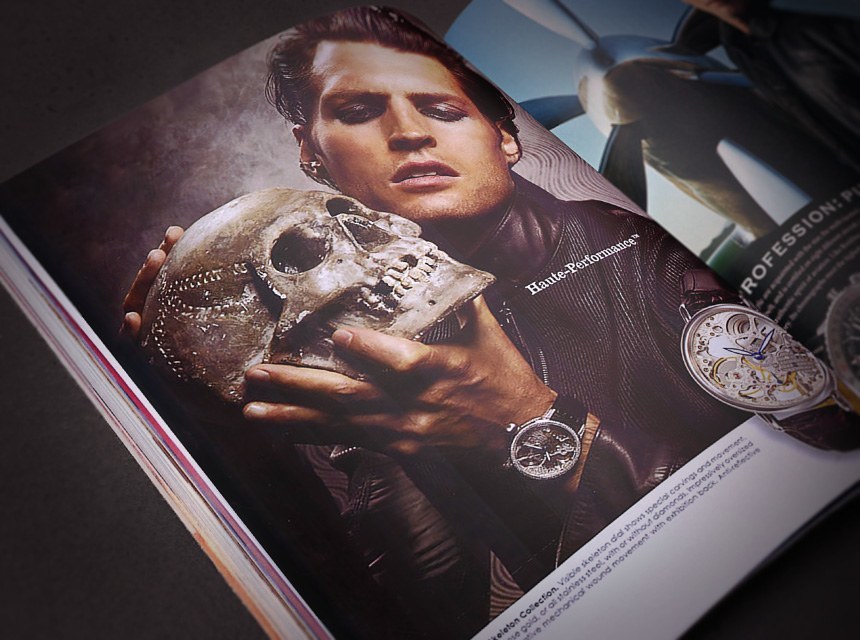
Legitimize This!
Swiss people don’t have a reputation for being the most trusting. What is one of the first qualities that people think of when they think of Switzerland? That’s right, secrecy. The Swiss banking industry hasn’t been around for so long because of wise investments, but rather because of the culture’s extreme focus on promoting discretion. The worst sin in Switzerland is being too loud, whether that is with noise, information, or images.
So how then do you get a Swiss person to trust you? You need to have “legitimacy.” Swiss culture has been around for quite a while. The city of Basel, for instance – which is where the world’s most important watch trade show “Baselworld” is held each year – is about 1000 years old (the city that is). Swiss people tend to trust things which have been around for a long time (and survived). It isn’t really important how or why you survived, but if your family or company has been around for a long time, the Swiss people grant you a sense of legitimacy. That invariably means it is tough for new things to gain traction or popularity in Switzerland, which is often a source of perpetual perplexion for foreigners who visit Switzerland and wonder why the people aren’t adapting to much of where the outside world is going. A good example is exactly on point, and that is the fact that there is a major industry in Switzerland creating mechanical watches, when by most accords that technology became obsolete sometime back in the 1970s.
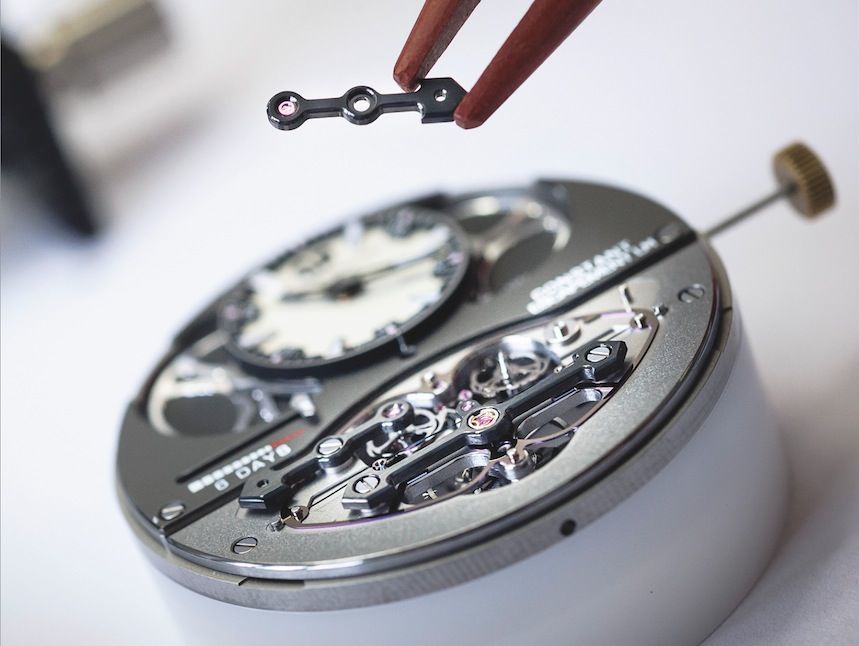
You might say that many aspects of Swiss cultures exist within a self-perpetuated bubble, fueled by a need to legitimize everything that is new. Further, the Swiss people actually like the bubble that they have created. For years now, Switzerland is ranked among the “happiest” countries in the world. Forget the fact for a moment that no one has been able to adequately define what happiness actually is, and consider that the real implication of these findings is that Swiss people are incredibly content and comfortable.
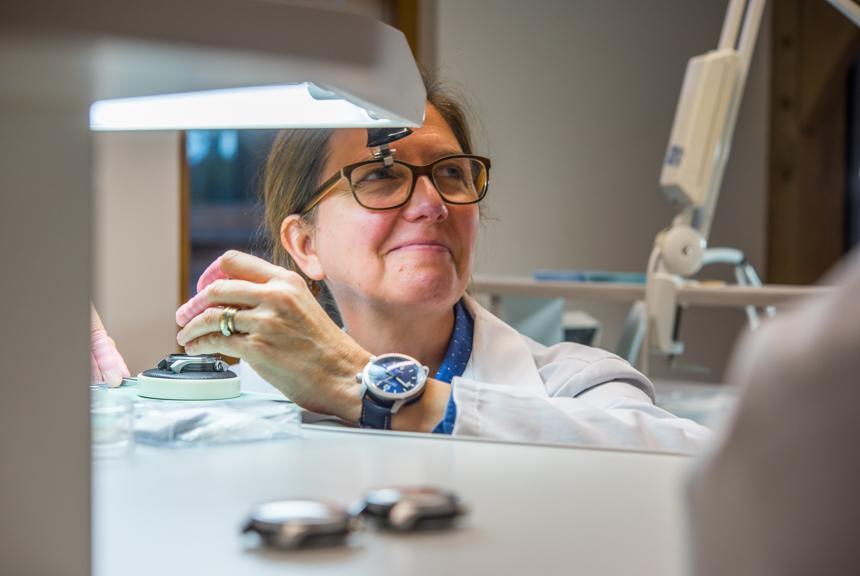
Studies of Swiss “happiness” generally tend to find what it really means is that Swiss people feel safe and content. Not only safe in knowing what will happen tomorrow, but more or less the rest of their lives. Moreover, Swiss people generally report feeling that their way of life and social security are being maintained by the government. The moral of the story, I suppose, is that the best way we have been able to measure happiness is as a function of being able to live comfortable, predictable lives.
The watch industry more directly benefits from this status quo because Swiss culture supports it. As I mentioned above, the Swiss watch industry isn’t just a collection of watch brands, but rather a disparate assortment of many companies who are various suppliers and service providers that together keep the industry going, blissfully ignorant of the happenings of the outside world which, to the Swiss people, haven’t really been legitimized enough yet to justify taking an earnest look. Maybe in a few decades from now…
Slow (Really Slow) And Steady
If you accept the notion that Swiss people don’t trust new things and are generally content with how they do things right now (something that the Swiss government continually protects and promotes), it doesn’t take a leap of logic to predict that things happen in Switzerland very, very slowly. Again, this is something that also allows for a fertile environment to produce small mechanical objects with many parts which need to be assembled by hand.
In my opinion, the effort to produce traditional mechanical watches is directly linked with a culture’s ability to put up with the fact that it takes so long – in other words, that it is slow. Even in Switzerland, the lifestyle in the “big” cities (relatively speaking, of course) is too fast-paced for watch production. Yes there are a few watchmakers that are located in the sleepy (by most foreign standards) city of Geneva, but most of them are outside the city or are altogether in the countryside. In fact, the more complicated a watch is, the more likely the place it is produced is surrounded by farmland and cows.

Why this is can be difficult to fathom if you’ve never needed to actually sit down yourself and put together a watch. It takes patience, skill, a steady hand, and literally nowhere you need to rush to. Rushed work is how you make a poorly made, ugly watch. Slow, meticulous dedication seems to be the formula for making the really nice ones we like.
I personally believe that without the culture of “steady living,” Switzerland would not be able to produce as many elaborate mechanical watches as they do; and conversely, that is why some other places struggle so much to do so. Even in other countries where high-quality mechanical watches are produced, you’ll find that it occurs in more quiet areas and regions.

Cartier’s La Chaux-de-Fonds manufacture.
The takeaway message of this point is to illustrate one of the many double-edged swords of high-end wristwatch production. On the plus side, the acceptance (and promotion) of a slow-paced lifestyle in Switzerland makes it fertile ground to produce timepieces and to offer the patience to make a high volume of good ones. But on the other side, it can make Switzerland painfully slow for others to do business with, and more dangerously, internally unaware of important changes and developments they should take into consideration that are happening in the rest of the world.
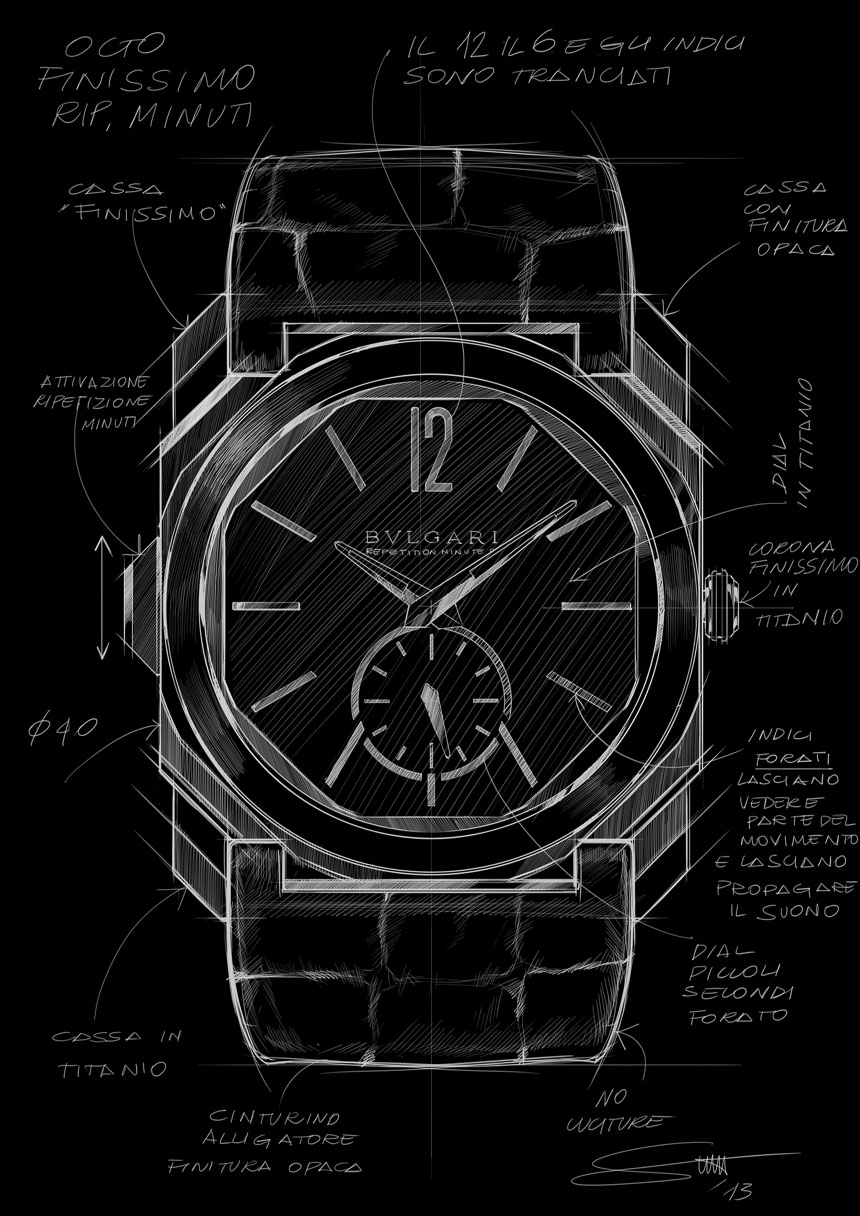
Enlightened Romanticism
Now comes the time when I’d like to talk about design. As a watch snob, I spend inordinate amounts of time painstakingly looking at the finer details of wrist watches, sometimes to the exclusion of being able to look at the bigger picture. As I’ve become a bit more mature in my appreciation of timepieces, I’ve been able to make more macro-level observations about Swiss watch design philosophy… and the term I’ve come up with to describe it is “enlightened romanticism.”
I am very directly referencing the historical thought periods of the Enlightenment as well as the Romanticism backlash which occurred as a result. In reality, however, these competing forces of human thought and values have been at odds for eons. In this context, an enlightened view is more pragmatic and about functionality and utility. A watch is, after all, a tool; and like all tools, they should be judged on their ability to perform well the task that they were designed to perform. The enlightened element of appreciation as well as designing a watch is to focus on functionality. Not only must a watch movement be accurate and reliable, but it must also effectively and legibly indicate the information it is designed to measure.
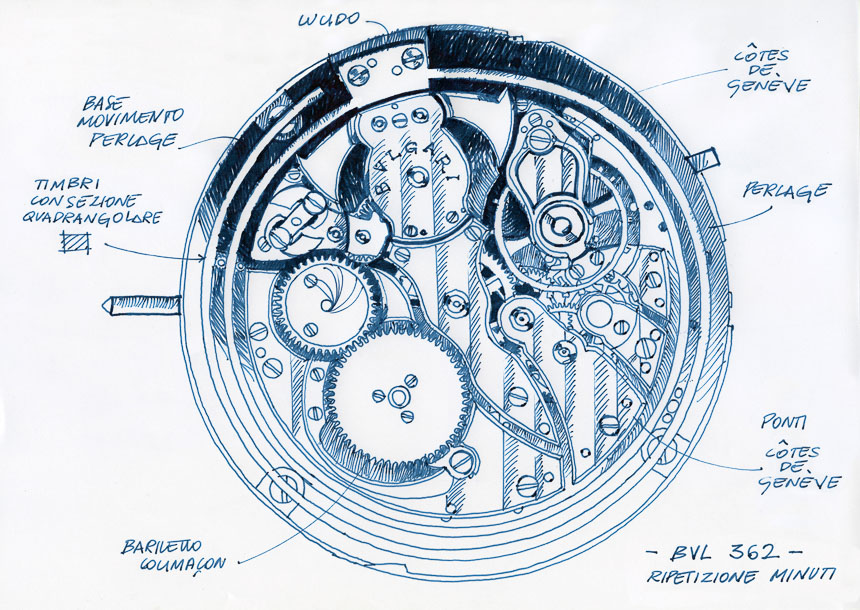
What does that mean? Well, on the inside, a Swiss watch must have a movement that tells good time with accuracy. It must also do that on a regular basis such that the person relying on it isn’t worried that it will break or have errors frequently. On the outside, the watch should be an effective tool. It should be comfortable to carry around, and when you reference the watch, it shouldn’t be time-consuming or difficult to read the information indicated on the dial. I would say that the first few hundred years of the watchmaking industry were primarily dedicated to making a properly “enlightened” watch that is imbued with the above qualities. Such qualities today continue to be promoted and celebrated in the better Swiss watches that are produced.
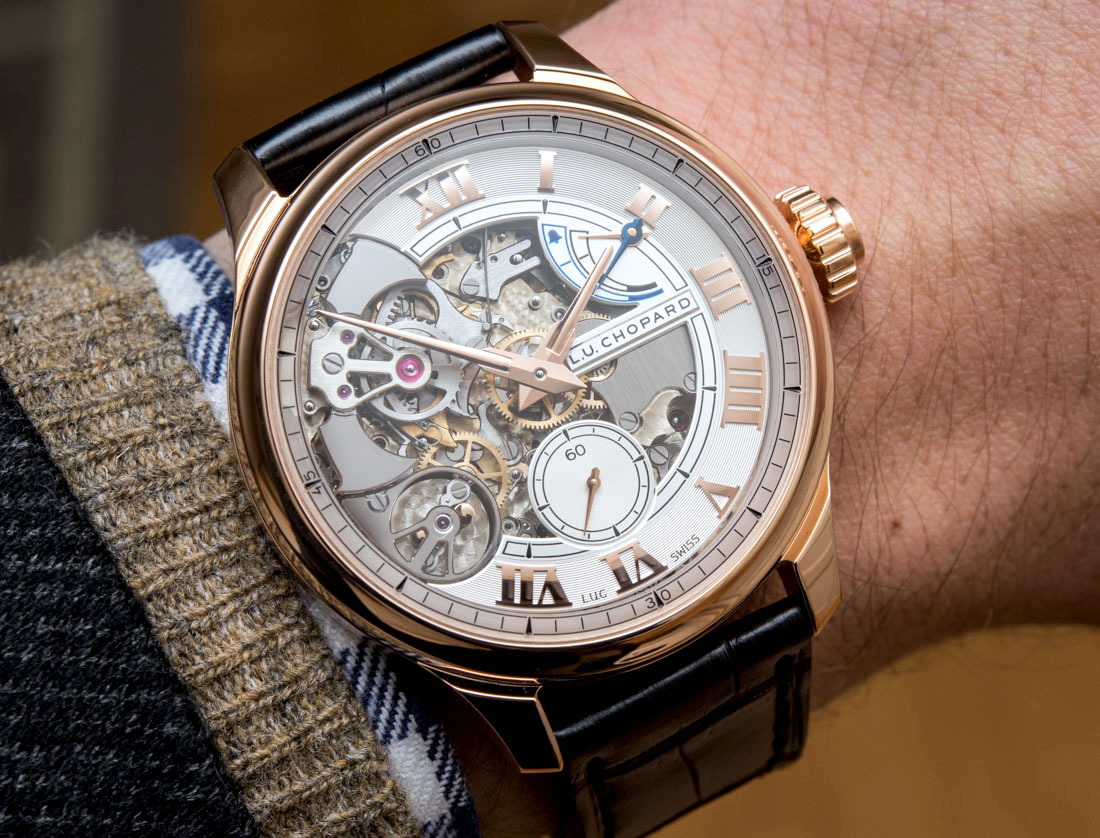
More simple to get right, at least historically for watchmakers, was what I call the Romanticism element of watches. This isn’t because it is easy, but rather because human culture had a lot more experience in making items of art. I like the term Romanticism in this context because it suggests that in addition to watches being functional, they must also have personality. Romanticism thinking is interested in emotion, art, beauty, passion, higher purpose, meaning, and the celebration of the human as more than a mere vessel of genetic biomass. Humans are “feeling machines,” in my opinion, and we connect to other things which we feel are share those qualities or are produced to celebrate the best of our emotional and mechanical nature. Can you see how well a watch might do that?
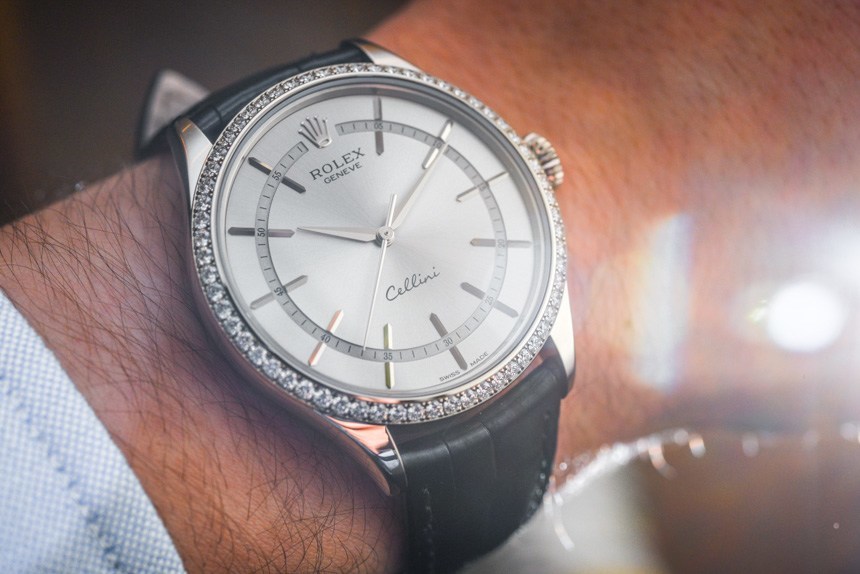
So how does romanticism manifest itself in wristwatch design and production? This is where qualities such as beauty, sexiness, art, emotion, etc. come in. A quality Swiss watch begins life as a cold, hard time-measurement device but is later wrapped in a skin which gives it a romanticized personality. Swiss watches are renowned for their ability to be both useful and evoke emotion. It isn’t a concept even the Swiss are particularly good at explaining (perhaps because it has been part of their mantra for so long), but for me, that is really how you can sum up the design philosophy of a good Swiss watch (or at least the design intention – just because you make watches in Switzerland does not automatically give you taste or sophistication).
To sum up this important point, I want to reiterate that this is an ultimate goal of Swiss watchmaking rather than a promise of “Swiss Made.” There are both ugly, useless watches from Switzerland, and useful, beautiful watches from other places. The point is that if you want to understand the goals and ultimate success of the better parts of the Swiss watch industry, you’ll appreciate that a major point of distinction is their ceaseless attempt at pursuing the most well-made, most useful, and most beautiful timepiece that attempts to combine each of these things in a single item.

